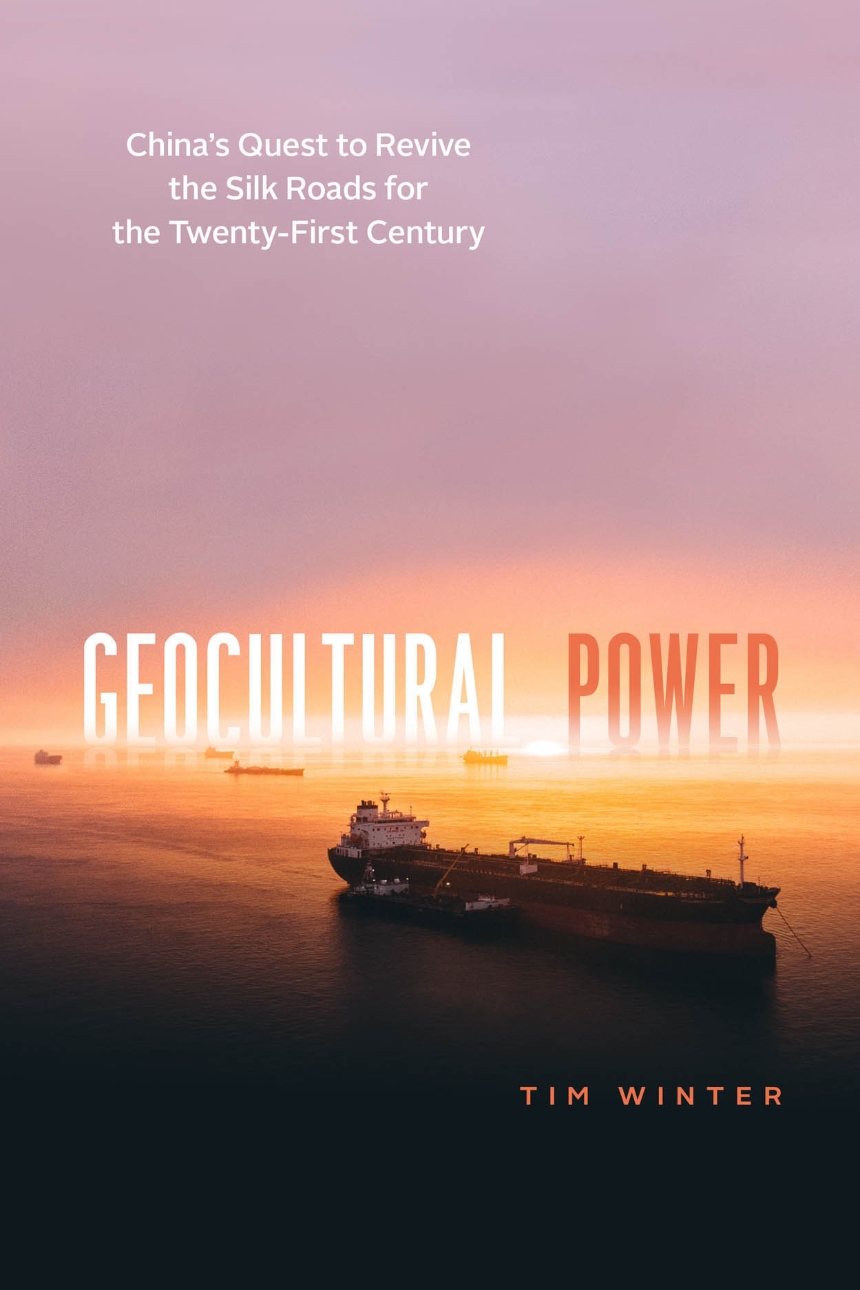Geocultural Power
China’s Quest to Revive the Silk Roads for the Twenty-First Century
9780226658353
9780226658490
Geocultural Power
China’s Quest to Revive the Silk Roads for the Twenty-First Century
Launched in 2013, China's Belt and Road Initiative is forging connections in infrastructure, trade, energy, finance, tourism, and culture across Eurasia and Africa. This extraordinarily ambitious strategy places China at the center of a geography of overland and maritime connectivity stretching across more than sixty countries and incorporating almost two-thirds of the world’s population. But what does it mean to revive the Silk Roads for the twenty-first century?
Geocultural Power explores this question by considering how China is couching its strategy for building trade, foreign relations, and energy and political security in an evocative topography of history. Until now Belt and Road has been discussed as a geopolitical and geoeconomic project. This book introduces geocultural power to the analysis of international affairs. Tim Winter highlights how many countries—including Iran, Sri Lanka, Kenya, Malaysia, Indonesia, Pakistan, and others—are revisiting their histories to find points of diplomatic and cultural connection. Through the revived Silk Roads, China becomes the new author of Eurasian history and the architect of the bridge between East and West. In a diplomatic dance of forgetting, episodes of violence, invasion, and bloodshed are left behind for a language of history and heritage that crosses borders in ways that further the trade ambitions of an increasingly networked China-driven economy.
Geocultural Power explores this question by considering how China is couching its strategy for building trade, foreign relations, and energy and political security in an evocative topography of history. Until now Belt and Road has been discussed as a geopolitical and geoeconomic project. This book introduces geocultural power to the analysis of international affairs. Tim Winter highlights how many countries—including Iran, Sri Lanka, Kenya, Malaysia, Indonesia, Pakistan, and others—are revisiting their histories to find points of diplomatic and cultural connection. Through the revived Silk Roads, China becomes the new author of Eurasian history and the architect of the bridge between East and West. In a diplomatic dance of forgetting, episodes of violence, invasion, and bloodshed are left behind for a language of history and heritage that crosses borders in ways that further the trade ambitions of an increasingly networked China-driven economy.
See the author’s website for the book.
304 pages | 15 maps, 11 line drawings | 6 x 9 | © 2019
Asian Studies: East Asia, General Asian Studies
Geography: Cultural and Historical Geography
History: Asian History
Reviews
Table of Contents
List of Illustrations
Preface
Work Together for a Bright Future of China-Iran Relations, Xi Jinping, January 2016Preface
Chapter 1. From Camels and Sails to Highways and Refineries
Belt and Road
The Dream of an Integrated Eurasia
Heritage Diplomacy
The Dream of an Integrated Eurasia
Heritage Diplomacy
Chapter 2. The Silk Road: An Abridged Biography
Constructing the Antiquities of Eurasia in the Politics of Empire
Inscribing National Pasts
Traveling Eurasia
East-West Encounters in the Shadow of the Cold War
Conclusion
Inscribing National Pasts
Traveling Eurasia
East-West Encounters in the Shadow of the Cold War
Conclusion
Chapter 3. A Politics of Routes
The Restitution of Greek Culture
Connecting Futures; Metaphors of the Past
Shifting the Geographies of Internationalism
Connecting Futures; Metaphors of the Past
Shifting the Geographies of Internationalism
Chapter 4. Corridor Diplomacy
Corridors of Silk
Heritage Corridors by the Sea
Heritage Corridors by the Sea
Chapter 5. Objects of Itinerancy
Shipments of Porcelain
Exhibiting Itinerancy
Trafficking Antiquities
Exhibiting Itinerancy
Trafficking Antiquities
Chapter 6. Historical Openings
Explorations in History
Assembling Belt and Road Knowledge
Assembling Belt and Road Knowledge
Chapter 7. Geocultural Power
The Routes of Geocultural Power
The Smooth Touch of Silk
The Broad Arc of History
The Smooth Touch of Silk
The Broad Arc of History
Appendix
Notes
Bibliography
Index
Notes
Bibliography
Index
